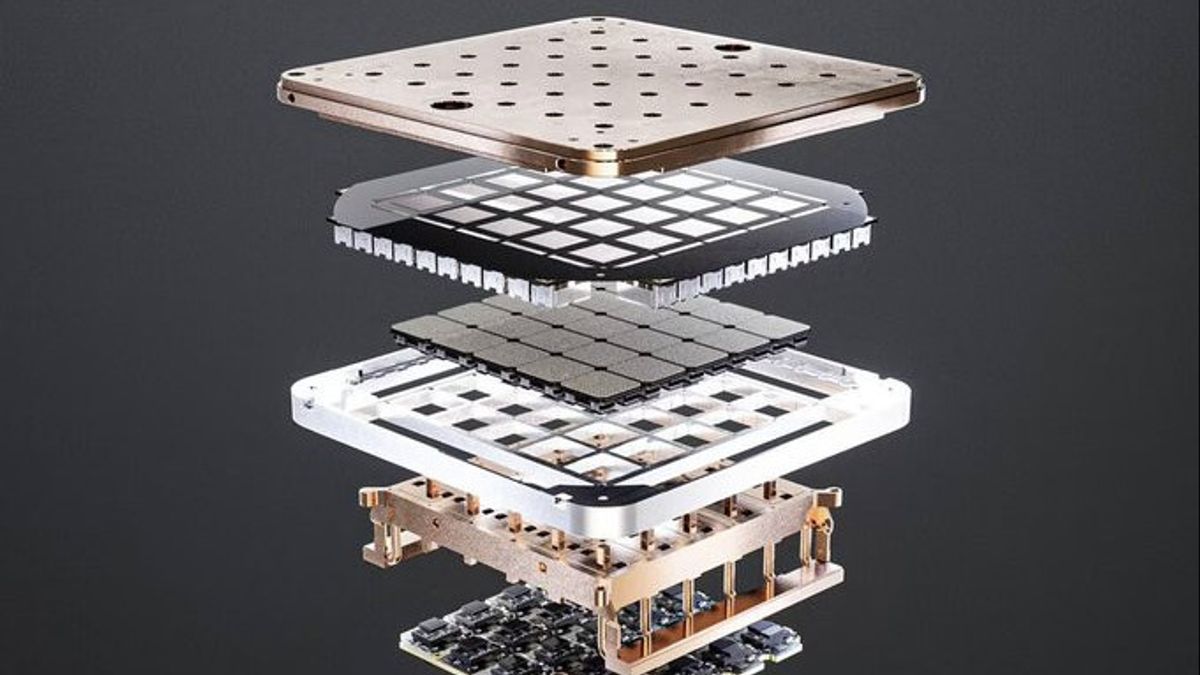The United States (US) government has expanded export restrictions on advanced artificial intelligence chips from Nvidia and Advanced Micro Devices (AMD) not only to China, but also to other regions including several countries in the Middle East.
Nvidia stated in a regulatory filing this week that these restrictions, which affect the A100 and H100 chips designed to accelerate machine learning tasks, will not have a "mediate material impact" on the proceeds.
The AMD concurrent pes also received a notification letter with similar restrictions, an individual familiar with the matter told Reuters, adding that this move had no material impact on his income.
US officials usually impose export controls on national security reasons. A similar move announced last year signifies the escalation of the US crackdown on China's technological capabilities, but it is not immediately clear what risks exports pose to the Middle East.
In a separate statement, Nvidia said the new licensing requirement "does not affect the meaningful share of our income. We are working with the US government to address this issue," Nvidia said.
The US Department of Commerce, which usually manages new licensing requirements for exports, did not immediately respond to requests for comment from the media.
In September last year, AMD said it had accepted new licensing requirements that would stop exporting their MI250 artificial intelligence chips to China.
Nvidia, AMD, and Intel have all been disclosing plans to make less powerful artificial intelligence chips to be exported to the Chinese market.
Nvidia, which gave no reason for new restrictions in its filing on August 28, this year said US officials informed them that the rule "will address the risk that products can be used in, or misused for, "final use of the military" or "final military users" in China."
Nvidia this week did not explain which countries in the Middle East were affected. The company earned most of its 13.5 billion US dollars (Rp205.6 trillion) sales in the fiscal quarter ending July 30 from the United States, China, and Taiwan. About 13.9% of sales came from other countries combined, and Nvidia did not provide revenue sharing from the Middle East.
"In the second quarter of fiscal year 2024, the US government informed us of additional licensing requirements for some A100 and H100 products aimed at certain customers and other regions, including several countries in the Middle East," Nvidia said in its submission on August 28.
Last year's announcement came as tensions escalated over Taiwan's fate, a chipbed for Nvidia and nearly all other major chip companies were manufactured.
SEE ALSO:
In October 2022, US President Joe Biden's administration went a step further by issuing a broad range of export controls, including actions to cut China off from certain semiconductor chips produced anywhere in the world with US equipment. The move greatly expanded Washington's influence in its efforts to slow down Beijing's technological and military advances.
Japan and the Netherlands also followed similar rules earlier this year.
Without American artificial intelligence chips such as companies such as Nvidia and AMD, Chinese organizations will be unable to effectively implement advanced computing used for image and speech recognition, among many other tasks.
The introduction of images and processing of generalized natural languages in consumer applications such as smartphones can answer questions and tag photos. They also have military use such as following satellite images for weapons or bases and filtering digital communications for intelligence gathering purposes.
The English, Chinese, Japanese, Arabic, and French versions are automatically generated by the AI. So there may still be inaccuracies in translating, please always see Indonesian as our main language. (system supported by DigitalSiber.id)


















